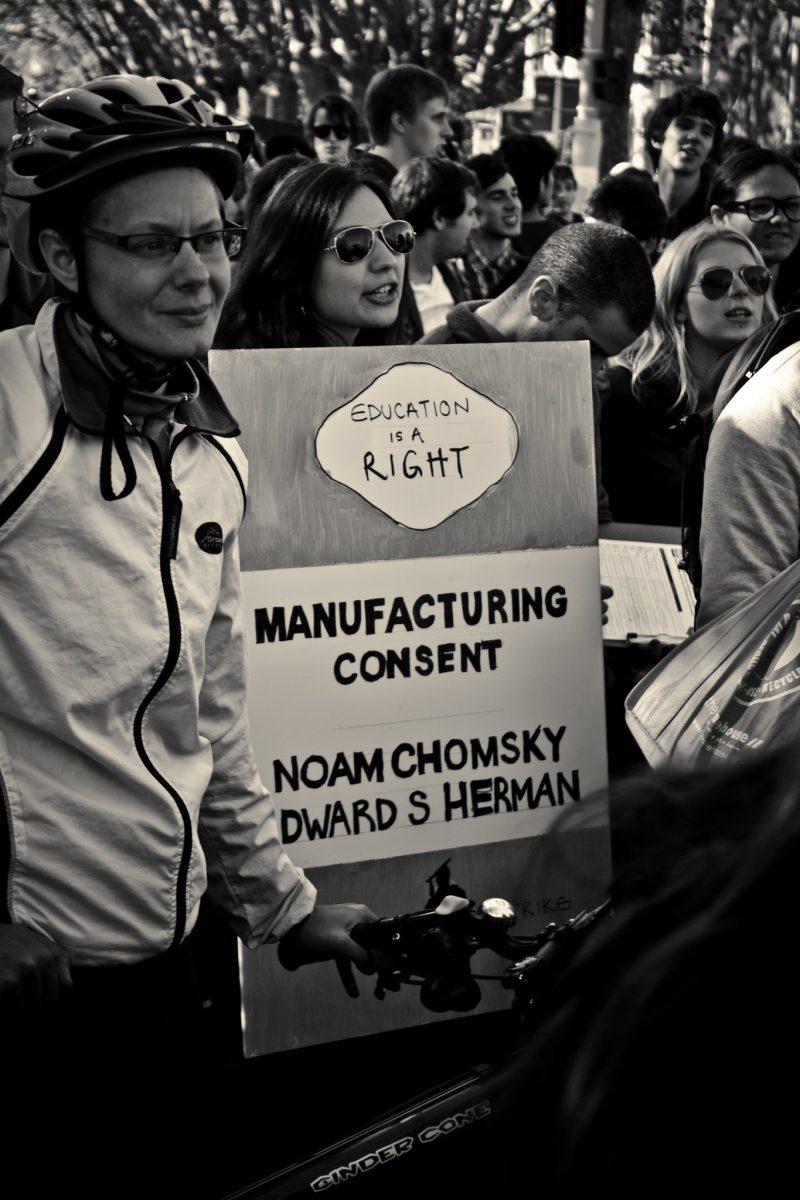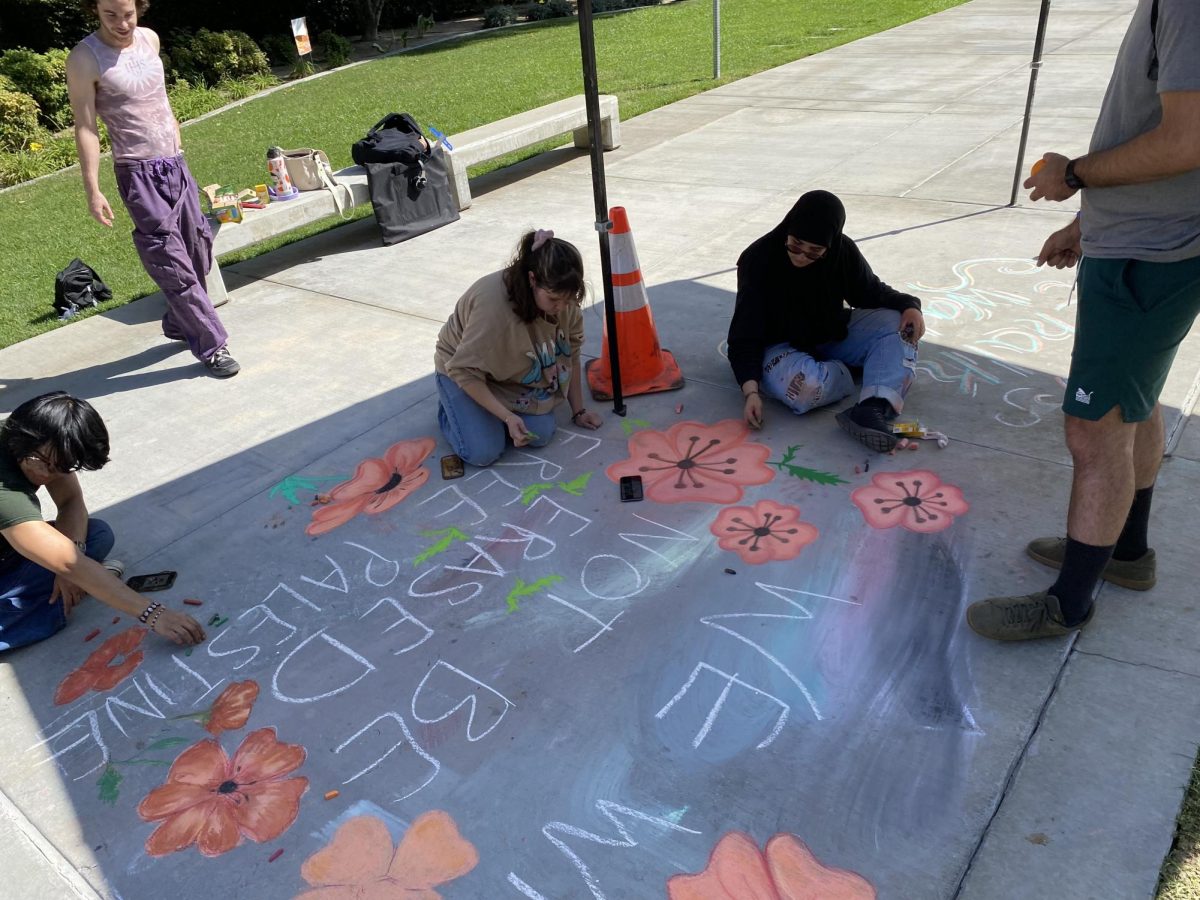By Olivia Drobny
Early voter turnout is already reaching record numbers and it is safe to say that this is not a normal election year.
Americans and the world have been treated to a political reality show over the past four years. Although this cycle might seem out of the ordinary, it is simply an exaggerated example of our definition of American democracy.
Noam Chomsky’s “Manufacturing Consent,” published in 1988, offers a scathing rebuke of the façade of American democracy and identifies the role of the greater American public in government. The media’s broadcasting of empty propaganda convinces us of our agency as political beings.
Ask yourself: How often do you participate in shaping our democracy?
Some of you might be consistently involved in political organizations, but the vast majority of Americans will answer that their only political participation takes place in the voting booth. When elections end, we fade into the background and watch political events play out in ways we may or may not support, but always without our direct consent.
The drama of news cycles reporting over the course of the last four years is no mistake. Chomsky explains how popular media serves as a distraction for the average American masses and keeps us in our place as observers rather than true participants — akin to sports fans rooting for their chosen teams.
Chomsky’s analysis is a logical criticism of what we call democracy in the United States of America. Our two-party system perpetuated by a long-term and strategically designed disinformation campaign convinces us of our ability to affect true change while simultaneously suppressing our participation. This is perhaps more dangerous than outright totalitarian rule.
In the second half of his book, Chomsky offers an interesting theoretical story about an Ivy League educated Martian who majored in journalism studies. The Martian, an objective observer, recognizes the significance of historical context. He is very deliberate with deciphering the meaning of terrorism and takes an intellectual journey to properly apply the term to the events playing out on earth.
Although Chomsky’s work is a powerful educational tool, the tone of his writing is problematic in that it has the potential to be misinterpreted as an approval of the broken system. A studied reader of progressive literature will recognize Chomsky’s certain tone, not as an endorsement, but as a cynical acknowledgement. This could be confusing for a reader who is less familiar with the genre.
Chomsky confronts the prevailing narrative of American democracy with an uncomfortable and controversial analysis. Since the 1950s, he has written a large number of compelling political publications on propaganda, human rights, and international affairs.












